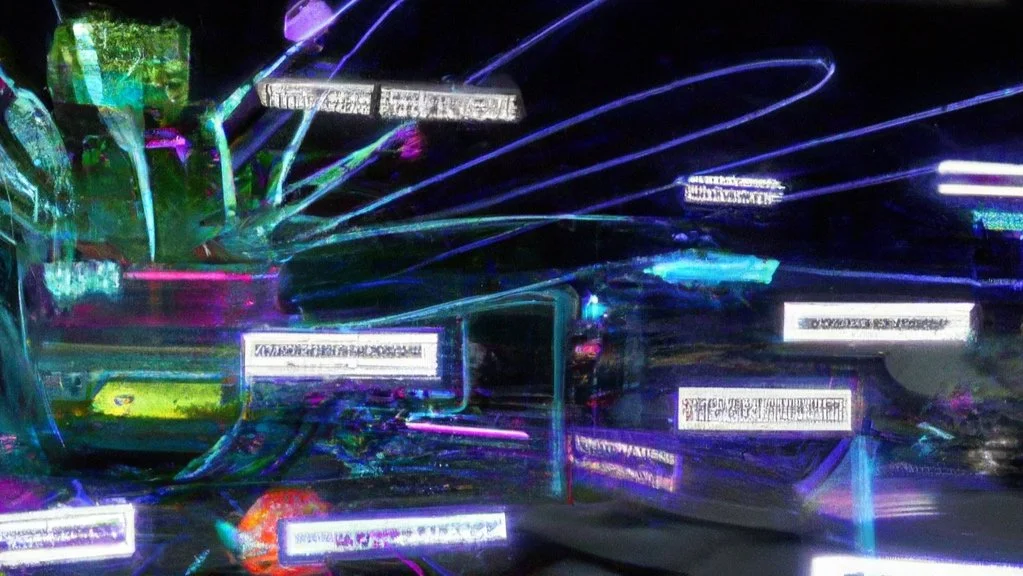I decided to build something different. Not a competitor to the big platforms, but a personal news system. Something that could filter stories on a granular level, pull out only what I actually want to know about, and then wrap it all in a bit of editorial framing so that I don’t just get the raw feed—I get perspective.
All tagged artificial intelligence
Check Your Settings: Anthropic’s Updated Terms
A few weeks back, Anthropic quietly rolled out an update to their consumer terms and conditions. Buried in the usual legal boilerplate was a line that’s actually pretty important if you’re using Claude for coding, writing, or just day-to-day problem-solving.
Halt and Catch Fire
And two quotes from the show’s lead engineer really hit me. “Computers aren’t the thing, they’re the thing that gets us to the thing.” and “The future [is] squarely in the hands of those who know computers, not for what they are, but for everything they have the potential to be.” Now, if you swap the word computers for AI, those lines could be dropped into a keynote today without raising an eyebrow.
Glitches, Hitches, and Fresh Fixes
If you’ve spent any meaningful time working with AI tools, you’ll know the feeling: you’re grinding away at a problem, tweaking prompts, reshaping the question, chasing that elusive answer. And sometimes it just… doesn’t land. No matter how many ways you phrase it, the output feels off, repetitive, or stuck in a loop.
Untethered Thinking for a Tethered Swimming Problem
TetherSwim – the Apple Watch app built to solve the frustration of tracking distance in tethered swimming. Discover how a simple idea turned into a smarter way to measure your swim without fake turns or guesswork.
Is AI Search the end of click-bait?
So, what happens to SEO when the system ignores titles and descriptions and evaluates content instead? Well, the SEO tactics we’ve relied on - stuffing keywords, optimising headlines, crafting meta copy - matter a lot less. If a page claims to have an answer but doesn’t actually deliver, the AI will skip it.
Focus on Now, Not Next.
what’s the right approach? In a world where technology is adapting and evolving at an incredible rate, what’s the sense in a 5-year plan? Rather than spending time trying to predict the future you can instead re-focus on what’s important and what is now.
Analogue Sheep : Vol 7 : Eau Du Historique
The first scent arrived by accident.
He was cleaning out a drawer in the basement when he found it: an old wool scarf wrapped around a broken cassette. The moment he lifted it, the smell hit him.
Analogue Sheep : Vol 6 : Mismemories
The house hadn’t changed. Not really. The white paint had flaked in places, the gate leaned, the mailbox hung open like a broken jaw—but it was still the same two-bedroom home perched at the end of the gravel lane. Still the wind-chime, dulled brass now, still the hedges grown wild around the porch. It was her. She was the one that had changed.
Off-the-Shelf Doesn’t Fit. This is Software Democracy.
Stop me if you think that you’ve heard this one before… It’s the next “app to end all apps”, the next finance system that will handle your project invoicing woes, the team sharing tool that will mean no-one misses those last-minute client requests, or the CRM giant that offers infinite customisations and integrations to cater for your every process. All for the very reasonable monthly fee of £ with an initial “mobilisation” phase of £££.
Let People Like Things. (Even AI)
I always remember being confused that when a particular band got popular, the kids who were into them before anyone else would completely lose interest - in the music that they had spent the best part of a last term hyping up to everyone else.
Red Pills
No, this isn’t some adolescence-related rant, I’m talking about choosing to learn things that you can’t un-learn about making a decision that you may come to regret but not knowing that until it’s too late.
PatBot - How to Trust Your Local AI
So how do we start to feel comfortable? How do we start to “trust” AI and / or the AI systems that are out there? We have to try to understand how they work and how they can work for us, and ideally, we can do this in fairly short order and with a low budget.
Good Vibes Only - The tools are ready, are you?
Vibe coding is essentially asking an LLM to give you the code to build something by simply describing what it should do, rather than inputting any line of code. The ability to open up software development to literally anyone with an idea and the knowledge of how it might be built. Importantly, and as I mentioned before not all applications should be built, and not jut “anybody” should be building these things.
Tiny Tunes, Big Dreams : Helping Your Kid Drop Their First Single
Following on from my blog last year about collaboration with ai to create music I wanted to share an update and the steps involved with setting up these services, not just for those looking to become the next overnight sensation, but also as a fun, educational and engaging activity kids of almost any age can enjoy.
Agentic AI in 2006
I built my first “Agent” in 2006. of course, 19 years ago we weren’t calling them “Agents” and there wasn’t a sniff of “AI”, but there was one thing that remains universally valuable. The vision to automate a process and the tools with which to build something capable of automating that process.
The Power of a Safe Word: Guarding Against AI Phishing Scams
Discover the power of a safe word in safeguarding your digital communications. This blog post explores the importance of establishing a unique code word among family and friends to verify the authenticity of requests and protect against increasingly sophisticated AI phishing attacks.
Adventures in AI : Short stories
Using ChatGPT 3.5, I've crafted outlines for three intriguing stories, sharing only their titles and synopses. Though these outlines are rough, they mark the beginning of an exciting exploration into the fusion of technology and imagination.
And the award goes to... how AI can help find the next generation of Oscar winners
AI can become an integral collaborator and supporter of the arts, rather than an outcast shunned by the artistic community.
The untouchables - AI immunity in the arts?
Art is not predictable, it is not something that can be automated and while it can be re-created by machines, these pieces lack the intangible element that defines art. Art requires humans and humans require art.



















